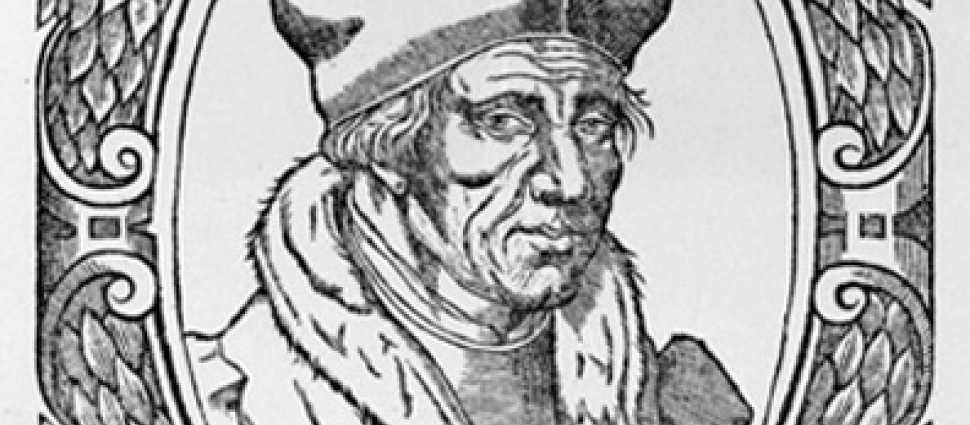Jacques Lefèvre D’Etaples – An Early French Reformer

Jacques Lefèvre D’Etaples – An Early French Reformer
The life of Jacques Lefèvre D’Etaples ran almost parallel to that of Martin Luther. Born around 1455 (28 years before Luther), Lefèvre died in 1536, when Luther was still teaching, preaching, and establishing churches.
In 1512, when Luther received his doctorate and became a professor of biblical studies, Lefèvre had already established himself as an esteemed scholar. The same year, he published a commentary to the Epistle to the Romans that explained justification by faith alone as clearly as any Protestant reformer could later do: “Let every mouth be stopped; let neither Jew nor Gentile boast that he has been justified by himself or by his own works. For none are justified by the works of the law, neither the Gentiles by the implanted law of nature nor the Jews by the works of the written law; but both Gentiles and Jews are justified by the grace and mercy of God …. …. for it is God alone who provides this righteousness through faith and who justifies by grace alone [sola gratia] unto life eternal.”[1]
This is just an example of Lefèvre’s writings, that included all the five solas of the Reformation (Sola Gratia, Sola Fide, Solus Christus, Sola Scriptura, and Soli Deo Gloria), as well as the doctrine of assurance of salvation and perseverance of believers that so irritated Cardinal Robert Bellarmine almost a century later. He affirmed in fact that “‘the forgiveness of our sins, our adoption as children of God, the assurance and certainty of life eternal, proceed solely from the goodness of God’ through faith in ‘our blessed Saviour and Redeemer Jesus,’ and that thanks to God’s love ‘we have complete confidence in him and the certainty of the forgiveness of our sins and of eternal life, and we have no fear of the day of judgment or of being condemned for our sins.’”[2]
In 1521, when Luther was excommunicated and declared an outlaw at the Diet of Worms, Lefèvre was attacked by the authoritative faculty of theology of the University of the Sorbonne, who had already viewed him with suspicion. (This was the same faculty that condemned a speech written by John Calvin, forcing him to go into exile).
The professors of the Sorbonne then forced Lefèvre to close an experimental school in Meaux, near Paris, that he had been leading under the auspices of Cardinal Guillaume Briçonnet to lead for the reform of preaching. And yet, many seeds had been planted. From this community in Meaux (known as Circle of Meaux) sprung a new generation of preachers, including Guillaume Farel, the reformer who firmly encouraged John Calvin to move to Geneva..
In the meantime, Lèfevre had also been working on a translation of the New Testament from the Latin vulgate into French. The complete translation appeared in 1524, two years before Luther’s publication of the New Testament in German. Once again, Lèfevre’s efforts met the disapproval of the doctors of the Sorbonne, who ordered the destruction of every copy of his translation. And once again, by providing a translation of Scriptures in the language of the people, Lèfevre contributed to the start of the Reformation in France.
Recalled by King Francis I of France in 1526, Lèfevre was assigned to serve as tutor at the court of Francis’s sister, Marguerite de Navarre, who became one of his most loyal followers and supporters. Lèfevre spent the last part of his life there, teaching, writing, and translating until his death in 1536.
Besides Marguerite of Navarre and William Farel, Lefèvre influenced many of his contemporaries, including Anne Boleyn, the second wife of Henry VIII, who lived in France during her teenage years; Renée of France, daughter of Louis XII; Martin Luther, who based his Pauline lectures on Lefèvre e remained in correspondence with him; and John Calvin, who most likely met Lefèvre during his travels in incognito.
While Lefèvre’s writings include many of the teachings of the Reformation, they are not always consistent – possibly due to his desire to remain in the Roman Catholic Church and reform it from within. But they were influential enough that Calvin’s successor, Theodore Beza allegedly spoke of Lefèvre as the man “who boldly began the revival of the pure religion of Jesus Christ”[3] in France.
[1] Philip Edgcumbe Hughes, Lefèvre: Pioneer of Ecclesiastical Renewal in France, W.E. Eerdmans Publishing Company, 1984, 74 [Quoting Lefèvre’s commentary, published in 1512].
[2] Hughes, Lefèvre, 191-192.
[3] Jean Henri Merle d'Aubigné, History of the Reformation of the Sixteenth Century, vols. 1-5, New York: Robert Carter and Brothers, 1856, 441





